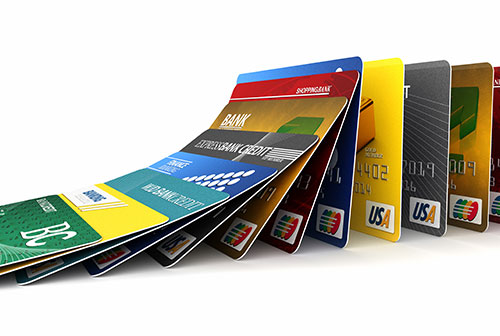Paisabazaar app Today!
Get instant access to loans, credit cards, and financial tools — all in one place
Our Advisors are available 7 days a week, 9:30 am - 6:30 pm to assist you with the best offers or help resolve any queries.
 Get the App
Get the App

Get instant access to loans, credit cards, and financial tools — all in one place

Scan to download on


Today it’s not just festivals that make us think of big-ticket purchases such as a flat-screen TV or refrigerator and other consumer durables. With high disposable incomes, buying consumer goods does not need a special occasion anymore. In addition, advancements intechnology and stiff competition among manufacturers have made consumer goods even more accessible tovarious sections of society. May it be LEDs, Smartphones, household electronics or high-end technology gadgets, they all rule the market and social media, with flashy features and intriguing user interfaces. With such a dominant presence of consumer goods around us, it is obvious that many of us are lured to buy them, irrespective of whether we need them or not. Another reason that makes it all the more tempting to make big-ticket purchases on a whim arethe Equated Monthly Installment (EMI) options that enable the consumer to buy expensive itemswithout worrying about paying the due amount in one go. But do EMIs come for free? Let’s find out the story behindEMIs whenbuying consumer goods.
Total price under EMI
Whenever you make a purchase and convert the total due into EMIs, it is important to calculate the total amount that you will payat the end of the EMI tenure.Unless it is a 0% interest EMI scheme, the total amount paid will always be higher than actual price of the commodity as you will be charged interest on your purchase by the card issuer. For example, if you buy a phone worth Rs. 50,000 through EMIs overa six month period – you will end up paying, a much higher amount depending upon the prevailing rate of interest levied on EMIs.
Additional Charges
It is imperative for you to confirm with your bank and seller about any hidden or additional costs that may come with opting an EMI scheme for buying consumer goods. If you don’t do so, you may be unknowingly paying much more than you calculated. These charges are often termed as conversion charges and along with applicable tax will have to paid by you as part of your EMI payment.
Missing your installments
Credit cards are a great tool that enables you to buy consumer goods through EMIs. But after you do so, you don’t have theoption of skipping your monthly installment, just because your finances are tight. If you fail to clear your EMIs in a timely manner, be ready to pay staggering amount of interest that can be anywhere between 24% to 36% as penalty. Not just this, there are other late payment charges involved too and your credit score will also suffer with every missed payments.
Check for discounts
In most cases, anEMI conversion leads to a loss of discount offered on product that you are buying. Therefore, you will end up paying a higher price along with interest rates charged over EMIs. So check out with the seller about how discounts are treated under EMI schemes. Additionally, you may opt for an EMI conversion through your card issuer that way you can receive the discount from the seller and then pay interest on the discounted price.
Penalty on Foreclosure
EMIs come with a cost. You must ensure if you are ready to stick to the repayment schedule or not. When you go for EMIs, it is set for a specific duration that must be fulfilled. Don’t assume you will have the leisure of clearing off the dues at once whenever you have a windfall and come into some money. If you go for a foreclosure, you may be a charged a penalty that is somewhere between 2.5% to 3% of the outstanding principal amount. However, there are a few card issuers that offer the benefit of zero foreclosure/pre-payment charges. So do it is best to check with your bank beforehand.
EMIs – Yes or No?
EMIs are good for those who are aware of all the additional chargesthat come with it. It is then easier to sum up your budget and plan accordingly, but only if you have adequate financial discipline. In fact, if you have the capacity i.e. money in the bank, always pick the down payment option over EMIs as it may turn out to be much cheaper over the EMI duration. However, if you are cash crunched, EMIs are certainly a lucrative option to help you make big ticket purchases even if you do not have money in the bank.